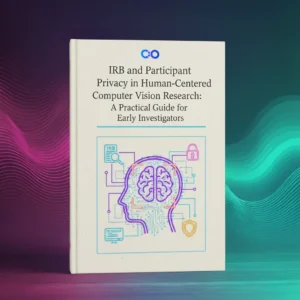

The significant decline in research funding over the last decade or so has left a long trail of unfunded research proposals that were high in both quality and potential. It does not make an exception whether you are an already established scientist, mid-career investigator, or a researcher who is struggling to begin an independent career. Funding resources to keep the research laboratories productive are even more scarce than they were yesterday. In these uncertain times, investigators who are relying entirely on a singular funding outlet are taking the most heat of the now acknowledged, research funding crisis. (Abkowitz and Hromas, 2018).
If you are at any of the above-mentioned career stages, revising your support grants strategy is the right step to increase the capital stream by establishing multiple sources of income to provide monetary assistance throughout the research project and beyond. Building a funding portfolio that is diverse in its reach with several monetary bases will give you the margin to see your research to an end and navigate the tough times better than those who depend on a single institution or funding agency. This article will explore several government grant opportunities as well as focus on where to look for by understanding different funders’ approach as to why they may support your research.
Governments all over the world have institutionalized several organizations to support research and development (R&D). These organizations allow citizens to pursue careers in science and technology for the advancement and welfare of the public.
To put it simply, government grants are ‘by the people – for the people’ phenomena. Today, we – the common people – finance the national scientific and technological advancements. The research that is funded by the government grants through federal funding agencies, e.g., the National Institutes of Health (NIH), etc., is for the collective uplift of society.
These grants that we all contribute in the form of public funds pave way for technological innovations and advanced scientific knowledge. Directly and indirectly, we support R&D through the taxes that we pay, the goods we purchase from companies or the services we avail, and often the donations that we make to the charities supporting medical advancement on the national level. (Bollen, Crandall, Ding and Junk, 2014)
It is the federal revenue that is then put through a complex systematic procedure with the help of several funding agencies established with the sole purpose of assisting nationwide progress in the field of science and technology.
Each federal funding agency has its criteria, approach, goals, and mission, which is usually clearly stated on its website or present on various grant databases. It is of absolute importance that you familiarize yourself with the funding organization you hope to have a successful shot at to support your research. Not every agency supporting your field of research is the correct choice for every particular goal. It cannot be stressed enough that having a diverse funding portfolio – that blends with several funding organizations – goes a long way.
While the main and most comprehensive database of federal grants statistics is Grants.gov, most federal funding agencies maintain their research websites. These web portals provide inclusive guidelines and follow-ups through their respective email alert services or newsletters.
We have compiled a list of other federal sites containing information on government grant funding programs.
The economic growth of any country is the responsibility of the sitting government. Today, it is not possible to lift the economy if the country lags in STEMM (Science, Technology, Engineering, Math, and Medicine) progression. To incorporate science into the whole structure that is working for the public welfare, federal, state, and local governments award financial assistance in a bid to promote social, health, defense, and educational prosperity of the country through the relevant governments departments by making funds available for eligible individuals and institutions to carry out scientific research.
But like with every other conceptual instance, the government grant funding programs come with both advantages and disadvantages. Below mentioned are some of the advantages that you must consider:
Government grants serve as significant financial tools to provide a platform for aspiring investigators along with established, credible scientists to explore uncharted territories with result-oriented research to benefit mankind. (Hur, Ghaffarzadegan and Hawley, 2015)
The disadvantages of federal funding programs are as important on the whole, as is any other element comprising government grant considerations.
Some of the disadvantages are as follows:
The concept of free-money that is often associated with competing government grants intensifies the already stiff competition that serves as an unfair barometer for proposal rejection.
The huge variety of available grant opportunities can simultaneously be confusing and tempting. It is easy to get carried away with the suitability of a certain grant deadline or the amount any specific funding program is offering, but misusing the likely one chance of applying for a federal grant is as grave a mistake as actually writing a dishonest and overreaching project proposal. Patiently waiting for the right funding opportunity announcement, one that is appropriate not only to your field of research but also fits your career stage description, is the key to success. Some grants programs are exclusively for new investigators, while others are solely for senior researchers. Some funding programs support large, multi-resource projects while others are specifically aimed at simple, short term projects. (Groves, Hojgaard & Schroter, 2010).
Your best bet to successfully acquire and manage government grant funds is through contacting the program officers at federal funding agency that may support your research. Program officers or staff scientists are in the position to guide you with useful and insightful information about the grant programs.
